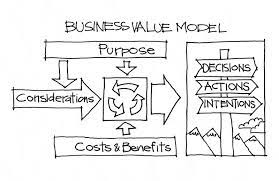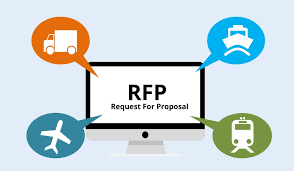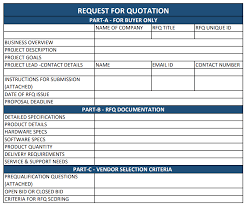The Role of the Frontal Lobe in Decision Making
The frontal lobe is a crucial part of the brain that plays a significant role in decision making. Located at the front of the brain, the frontal lobe is responsible for a variety of cognitive functions, including reasoning, problem-solving, planning, and impulse control.
When it comes to decision making, the frontal lobe is particularly important in weighing the pros and cons of different options, predicting potential outcomes, and controlling impulsive behavior. Studies have shown that damage to the frontal lobe can lead to difficulties in making decisions and regulating emotions.
One key area within the frontal lobe that is closely associated with decision making is the prefrontal cortex. This region helps us evaluate risks and rewards, consider long-term consequences, and make complex decisions based on our goals and values.
Furthermore, research has shown that the development of the frontal lobe continues into early adulthood, which may explain why young people often struggle with decision making compared to adults. As we age, our ability to make sound decisions tends to improve as our frontal lobe matures.
In conclusion, the frontal lobe plays a vital role in decision making by enabling us to assess information, weigh options, and choose the best course of action. Understanding how this part of the brain functions can help us make better decisions in various aspects of our lives.
7 Essential Tips for Improving Decision-Making with Your Frontal Lobe
- Take time to analyze the situation before making a decision.
- Consider the potential consequences of each option.
- Seek advice from others to gain different perspectives.
- Manage stress levels as it can impact decision-making abilities.
- Practice mindfulness to improve focus and clarity in decision-making.
- Prioritize important decisions over less critical ones.
- Continuously educate yourself to enhance your decision-making skills.
Take time to analyze the situation before making a decision.
Taking the time to analyze the situation before making a decision is crucial when it comes to leveraging the frontal lobe’s decision-making capabilities. By pausing to assess the information at hand, weigh the potential outcomes, and consider all relevant factors, we allow the frontal lobe to engage in rational thinking and problem-solving. This deliberate approach can lead to more thoughtful and well-informed decisions, ultimately helping us navigate complex situations with greater clarity and confidence.
Consider the potential consequences of each option.
When utilizing frontal lobe decision-making strategies, it is essential to consider the potential consequences of each option. By carefully evaluating the outcomes that may result from different choices, individuals can make more informed decisions that align with their goals and values. This process allows for a thorough analysis of the risks and rewards associated with each option, enabling individuals to weigh their decisions thoughtfully and select the most advantageous course of action.
Seek advice from others to gain different perspectives.
Seeking advice from others can be a valuable strategy when it comes to frontal lobe decision making. By gaining insights and perspectives from different individuals, we can broaden our understanding of the situation at hand and consider factors that we may not have thought of on our own. This can help us make more informed decisions by taking into account various viewpoints and potential outcomes, ultimately leading to better choices aligned with our goals and values.
Manage stress levels as it can impact decision-making abilities.
Managing stress levels is crucial when it comes to optimizing our decision-making abilities, particularly in relation to the frontal lobe. High levels of stress can impair the functioning of the frontal lobe, making it harder for us to think rationally, evaluate options effectively, and control impulsive behavior. By keeping stress levels in check through relaxation techniques, mindfulness practices, and healthy coping strategies, we can support our frontal lobe’s ability to make sound decisions and navigate challenging situations with clarity and focus.
Practice mindfulness to improve focus and clarity in decision-making.
Practicing mindfulness can be a powerful tool to enhance focus and clarity in decision-making by engaging the frontal lobe of the brain. By being fully present in the moment and cultivating awareness of our thoughts and emotions, we can better evaluate options, consider consequences, and make decisions aligned with our values. Mindfulness helps reduce distractions and impulsivity, allowing us to approach decision-making with a calm and clear mindset. This practice can lead to more thoughtful and intentional choices that are in harmony with our long-term goals.
Prioritize important decisions over less critical ones.
When it comes to utilizing the frontal lobe for decision making, it is essential to prioritize important decisions over less critical ones. By focusing on the significance of each decision, we can allocate our cognitive resources effectively, allowing us to thoroughly evaluate the options, consider potential outcomes, and make informed choices. Prioritizing important decisions helps us harness the full potential of our frontal lobe’s capabilities in reasoning and problem-solving, leading to better outcomes and more successful decision-making processes overall.
Continuously educate yourself to enhance your decision-making skills.
Continuously educating yourself is a valuable tip for enhancing your decision-making skills, particularly in relation to the frontal lobe. By learning new information, acquiring different perspectives, and expanding your knowledge base, you can strengthen the cognitive functions of the frontal lobe that are essential for effective decision making. Education not only provides you with more tools and resources to make informed decisions but also stimulates the brain and promotes neural connections in the frontal lobe, ultimately improving your ability to assess situations, consider various options, and make sound choices.




